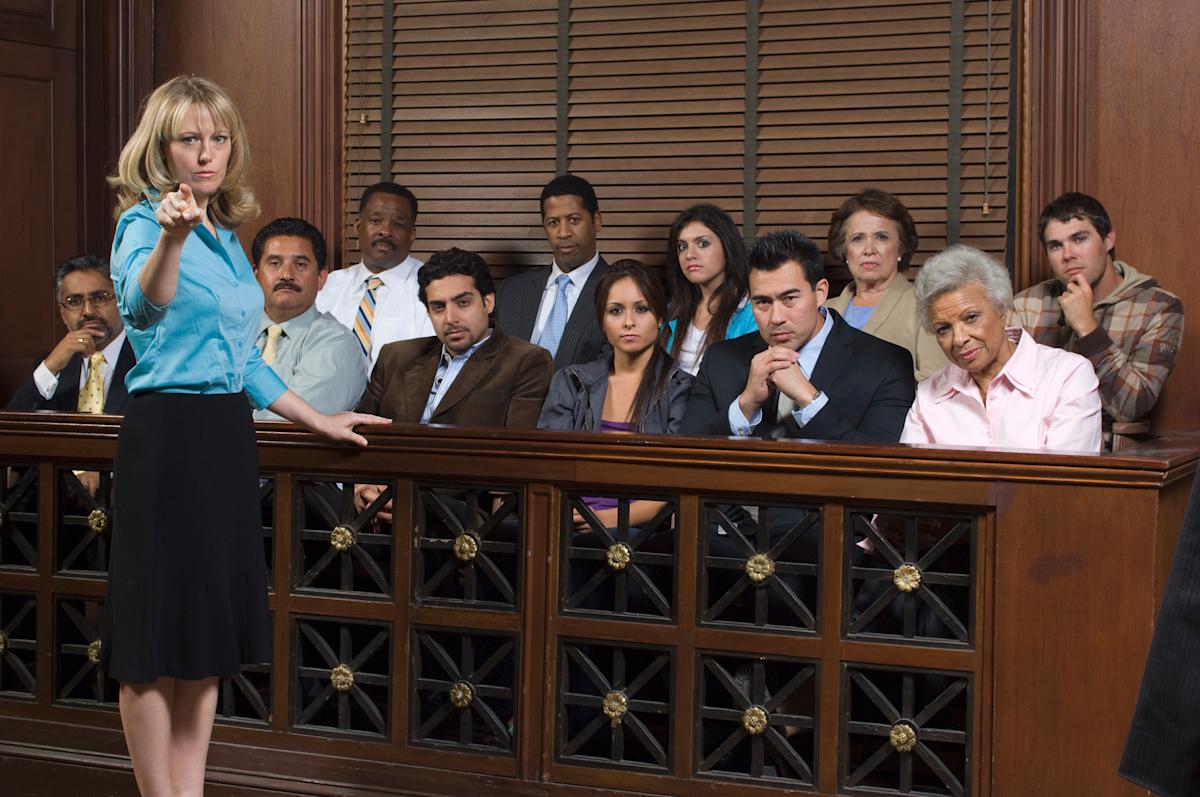How Much Does a Criminal Defense Attorney Cost? [2024]

Being accused of a crime is a serious matter, and it is crucial to understand the costs and potential benefits of hiring a criminal defense lawyer. According to a report by the National Association of Criminal Defense Lawyers (NACDL), there are over 1.3 million felony cases prosecuted in the United States each year. The average cost of a criminal defense case can range from several thousand to tens of thousands of dollars. However, having a criminal defense lawyer can provide invaluable benefits, such as a better understanding of the legal system, protection of one's legal rights, and potentially a better outcome.
In this article, we will provide a strategic overview of the costs of a criminal defense case, the benefits of hiring a criminal defense lawyer, and some legal resources available to individuals convicted of a crime.
Do I Need a Criminal Defense Lawyer?
Many individuals facing criminal charges may be appointed a court-appointed attorney for legal proceedings. While these attorneys are capable and experienced, there are certain situations where hiring a private criminal defense lawyer may be a better option.
One of the main advantages of hiring a private criminal defense lawyer is the expertise they can provide. A private attorney may have more knowledge of the law and access to more resources, including private investigators and forensic specialists. These additional resources can be critical in complex cases where the stakes are high.
In addition, a private criminalized defense lawyer may be able to give their client more personalized attention. Court-appointed attorneys often have high caseloads and may be unable to devote as much time to the case.
Flexibility is also a factor to consider. While the court assigns a court-appointed attorney, the defendant can choose a private attorney based on their experience and reputation. Additionally, a private attorney may be able to work more flexibly with the defendant's schedule and priorities.
Finally, the financial investment in the case can be a factor when choosing between a court-appointed attorney and a private criminal defense lawyer. A private attorney is paid by the defendant and therefore has a financial incentive to do everything possible to achieve the best outcome for their client. In contrast, a court-appointed attorney may have a different level of investment in the case.
Overall, there are several reasons why someone may choose to hire a private criminal defense lawyer over a court-appointed attorney. By providing more significant expertise, personalized attention, and flexibility, a private attorney may be able to provide the best possible defense in a criminal case.
Criminal Defense Costs: What to Expect
Defending oneself in a criminal trial is not typically recommended, as it can be challenging and overwhelming. However, some related costs must be considered for those who choose to represent themselves. The following list provides a few examples of such expenses.
Time
Defending oneself in a criminal trial can be very time-consuming. It may require time researching the law, preparing legal documents, and attending court appearances. This may require the individual to take time off from work or other responsibilities.
In addition, if the defendant is in custody, the time spent waiting for the trial to begin can be costly. Being in custody can significantly impact the defendant's mental health, relationships, and overall well-being.
The defendant should also consider how long the trial might take. A criminal trial can be lengthy, and the time it takes to complete can vary greatly. If the trial drags on for an extended period, the defendant may be required to take more time off work or face other financial difficulties.
Even after the trial, there may be additional time and costs associated with the legal process. For example, the defendant may need to attend probation meetings, complete community service, or pay restitution.
Legal Fees
While representing oneself in court may seem like a way to save money on legal fees, it can be more expensive in the long run. Without the expertise of a trained legal professional, mistakes can be made that have costly consequences.
There are various legal fees and costs the defendant might incur, such as:
Filing Fees: Filing fees may be associated with submitting legal documents to the court, such as a motion or an appeal. These fees vary by jurisdiction but can be expensive.
Court Transcript Fees: If the defendant wants a copy of the court transcript, they must pay a fee for each page. Court transcripts can help prepare an appeal or for other legal purposes.
Copying and Printing Costs: If the defendant must make copies of legal documents or evidence, they must pay for them. In addition, if the defendant needs to print out materials for trial preparation or other legal purposes, they will need to pay for paper and ink costs.
Other Legal Expenses: Other legal expenses may be associated with a criminal trial, such as the cost of a notary or postage fees for sending legal documents.
Expert Witnesses
Expert witnesses can be a significant cost in a criminal trial. They typically charge high hourly rates, and the price can quickly add up. For example, a forensic accountant may charge upwards of $500 per hour, and a medical expert may assess even more.
In addition to the hourly rate, the defendant may need to pay for the time the expert spends preparing for the trial, including reviewing documents, conducting research, and providing a report.
If the expert witness needs to travel to the trial, the defendant may be required to pay for travel expenses, including airfare, hotel accommodations, and meals.
Depending on the nature of the expert's testimony, there may be other associated costs. For example, if the expert needs to conduct tests or experiments, there may be costs related to materials and any necessary equipment.
Investigative Costs
When representing oneself in a criminal trial, the defendant may need to conduct an investigation to gather evidence, build their case, and prepare for trial. However, conducting an investigation can be expensive. For example, the defendant may need to pay for travel expenses, document retrieval costs, equipment rental fees, private investigator fees, forensic analysis costs, and other associated costs.
Travel expenses can include airfare, gas, tolls, and parking and can quickly add up if the defendant needs to travel to gather evidence, interview witnesses, or conduct research. Document retrieval costs can include the cost of copying or obtaining documents, such as police reports, medical records, and financial statements. Private investigators typically charge an hourly rate, and the price can be high if the defendant decides to hire one. Lastly, offensive analysis costs can include the cost of DNA testing or other types of testing needed for the evidence.
Legal Resources for Defendants
Many legal resources are available to help individuals navigate the criminal justice system and ensure their legal rights are protected. This list will explore some of the most common legal resources available for individuals accused of a crime. By taking advantage of these resources, individuals can better understand the criminal justice system and obtain the legal assistance they need to achieve the best possible outcome in their case.
The Legal Aid Society
The Legal Aid Society is a non-profit organization that provides free legal assistance to low-income individuals, including those accused of a crime. While this organization is based in New York City, similar organizations throughout the United States provide free or low-cost legal services to low-income individuals, including those who have been accused of a crime. They offer various services, including legal advice, representation, and other types of legal assistance.
For individuals who have been accused of a crime but cannot afford to hire an attorney, The Legal Aid Society can provide critical support. They can help the accused navigate the criminal justice system, understand their legal rights, and determine their case's best course of action.
Some examples of similar organizations include the Legal Services Corporation, which is a national organization that funds legal aid programs throughout the United States, and the Public Defender Service, which provides legal representation to indigent defendants in Washington, D.C. Individual states may also have their own legal aid organizations that offer similar services. For example, in California, the Legal Aid Society of Orange County provides free legal services to eligible residents of Orange County.
State Bar Association
A state bar association is an organization that regulates the legal profession in a particular state or jurisdiction within a county. Most states in the United States have a state bar association, which can be helpful for individuals accused of a crime in various ways. Some examples include:
Attorney referrals: State bar associations can refer individuals to attorneys who specialize in criminal defense. These attorneys have experience with the criminal justice system and can provide legal advice and representation in court.
Legal resources: State bar associations often have online or print resources that can help individuals understand the criminal justice process and their legal rights.
Legal clinics: Some state bar associations offer legal clinics where individuals can meet with attorneys to discuss their cases and get legal advice.
Court Websites
While court websites may differ by jurisdiction, some standard features can be helpful for individuals accused of a crime. These features may include:
Docket Search: Most court websites, like NYCourts.gov, allow individuals to search for information about their case, including the court docket, which lists the events and filings in the case. This feature can help individuals track the progress of their case and stay up-to-date on important deadlines.
Forms and instructions: Many court websites, including the California Courts website, provide access to forms and instructions that individuals can use to file appeals, petitions for post-conviction relief, and other documents related to the case.
Legal resources: Some court websites, like this page from the Texas State Law Library, provide access to legal resources, such as statutes, rules, and court opinions, that can help individuals research the law and understand their rights.
The first step to finding the correct court website is determining the court's jurisdiction where the case is being heard. For a criminal case, the jurisdiction would be the county or city where the crime occurred. Once the jurisdiction is determined, a simple internet search using the name of the jurisdiction and the term "court website" should yield the appropriate website. Again, it is vital to ensure that the website is the court's official website and not a private company offering legal services.
Expertise.com StaffAuthor
Step into the world of Expertise.com, your go-to hub for credible insights. We don't take accuracy lightly around here. Our squad of expert reviewers, each a maestro in their field, has given the green light to every single article you'll find. From rigorous fact-checking to meticulous evaluations of service providers, we've got it all covered. So feel free to dive in and explore. The information you'll uncover has been stamped with the seal of approval by our top-notch experts.

Richard KergerReviewer
Richard M. Kerger was one of the founding partners of The Kerger Law Firm, LLC where he specializes in trials and appeals. Before that he was a partner in the firm of Marshall & Melhorn. He joined that firm in 1976 as a trial lawyer and came to head the firm's Litigation Department. He was selected as a fellow of the American College of Trial Lawyers, Litigation Counsel of America, International Society of Barristers and American Board of Trial Advocates. Visit: https://www.kergerlaw.com/




